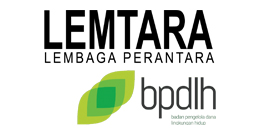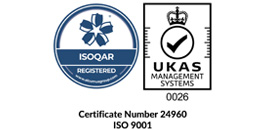Funded by
Yayasan Humanis dan Inovasi Sosial
Document
1.1.2/2021/YHIS/365/TP/tl
(amendment 2.3.4/2022/YHIS/348/P/CJ/AVFCJA/TP/tl)
Budget
EUR 455,895.39
Period
August 1, 2021 – October 31, 2024
Description
The Province of East Nusa Tenggara (NTT) in Eastern Indonesia has a lot of potential for coastal and marine resources. People in NTT Province also have a variety of unique local cultures and traditions. The archipelago province of NTT which consists of more than 1,190 small islands with a coastline of about 5,700 km and a sea area of 15,141,733 hectares is very vulnerable to climate change. Changes in temperature in the region have increased the frequency of climate hazards such as droughts, changing rainfall patterns and tropical storms. In NTT, the dry season is longer than other areas, which is seven months (May-November). Overall, the four districts/cities proposed to be the program intervention sites are among the areas most frequently experiencing drought due to the prolonged summer.
Since 2020 the COVID-19 pandemic has become a global threat to human health, including in Indonesia and the Province of NTT. Pandemics also have far-reaching economic consequences beyond the spread of the disease itself. The Covid-19 pandemic has increased the unemployment rate which in turn increases the pressure on natural resources, thereby exacerbating the impacts of climate change. Although fishermen and fish cultivators in coastal areas can still carry out their routine work individually, they experience difficulties in marketing their catch and harvest because there are no collectors entering the coastal village due to an inactive fish buying market. On the other hand, the reduced extractive activities during the peak of the pandemic, may also have an impact on the recovery of some natural resources. In addition, the government’s main attention and efforts to overcome the COVID-19 pandemic have also reduced financial resources to address the problem of climate change.
The resilience of coastal and small islands to climate change is often discussed in various forums by scientists and government officials. The factors that determine the adaptive capacity that builds coastal resilience include social/human, financial and physical factors. However, these factors have not been fully considered in actions to strengthen the resilience of coastal and small islands. CSOs and communities are often not aware or well informed about climate hazards in their areas and how to improve their capacity for adaptation and mitigation to climate change. Women and marginalized groups such as small-scale fishermen often have limited opportunities to take part and be recognized in addressing climate issues, even though they are the ones most affected by climate change. Women in coastal communities in NTT province play an important role in the use of coastal and economic resources such as in seaweed cultivation and traditional ‘meting feeding’ (picking and collecting small mollusks on reef flats and seagrass beds at low tide). In addition, in NTT Province, a number of traditional and local wisdoms are practiced, such as ‘lilifuk’ in Kupang, ‘hoholok/papadak’ in Rote Ndao, ‘muro’ in Lembata. Although traditional knowledge and local wisdom are important to be taken into account in climate science, the recognition of these traditional practices is still limited.
The main strategy or main approach of the program will be carried out with an adaptive management approach, Adaptive Management will allow the program to involve the learning process on a regular basis by considering feedback from the program monitoring and evaluation process as a basis for further planning, and possible adjustments or modifications to the ToC and implementation plans program. A monitoring and evaluation process will be carried out to ensure maximum involvement of the beneficiaries and key stakeholders. Meanwhile, the planning process will be carried out on a bottom-up basis by providing the widest possible platform for ideas and thoughts from the program management unit at the lowest level.
Funding
Yayasan Humanis dan Inovasi Sosial, based on Grant document 1.1.2/2021/YHIS/365/TP/tl (amendment 2.3.4/2022/YHIS/348/P/CJ/AVFCJA/TP/tl) periode Agustus 1, 2021- Oktober 31, 2024 with total funding support of EUR 455,895.39 Focus Area NTT.





